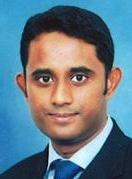- 29 Aug 2013
THE EGYPTIAN MILITARY OUSTER OF MORSI: WHAT IT MEANS FOR POLITICAL ISLAM IN THE MIDDLE EAST AND SOUTH EAST ASIA
ABSTRACT
Currently the Middle East is undergoing its most tumultuous phase of change. Scholars analyzing the events sweeping the Arab World, however, have been cautious in steering towards any predefined conclusions. They are amongst the many who continue to grapple with implications of the ongoing day-to-day upheavals. Seemingly an unending “transitional” period, the Middle East faces manifold challenges of transition – especially with the recent Egyptian military ouster of Mohamed Morsi. It leaves to be seen if the military intervention will help advance any notion of stability in Egypt. On the other hand, the forceful purging of Muslim Brotherhood from the Egyptian political scene clearly brings about grim prospects for political Islam everywhere. From the Centre for Research on Islamic and Malay Affairs’ (RIMA) Dr. Nawab Osman specifically brings about a Southeast Asian viewpoint on the impact of Morsi’s ouster on Islamist parties in the region. Whereas, MEI’s Dr. Benjamin Geer details repercussions of the recent military intervention for the Middle East, whose uprisings still continue to reverberate far and wide.
About the Speakers

Mohamed Nawab Mohamed Osman is the Coordinator of the Malaysia Program and a Research Associate with Contemporary Islam Programme at the S. Rajaratnam School of International Studies (RSIS), Nanyang Technological University, Singapore. His PHD was in Politics and International Relations (Australian National University) . His research interests include the domestic and international politics of Southeast and South Asian countries, transnational Islamic political movements and counter-radicalization.

Benjamin Geer (appearing via Skype) is an Academic Scholar of the Middle East Institute, National University of Singapore. Dr Geer obtained his doctorate at the School of Oriental and African Studies in London. His PhD thesis, The Priesthood of Nationalism in Egypt: Duty, Authority, Autonomy, combines sociology and cognitive linguistics to analyze the role of intellectuals in shaping nationalist concepts in Egypt, as well as the effects of those concepts on nationalist intellectuals over the long term. In 2011-2012 he was Visiting Assistant Professor and Associate Director of the Middle East Studies Center at the American University in Cairo.
Event Details
Faculty of Law
Block B National University of Singapore
469B Bukit Timah Road Singapore 259771




